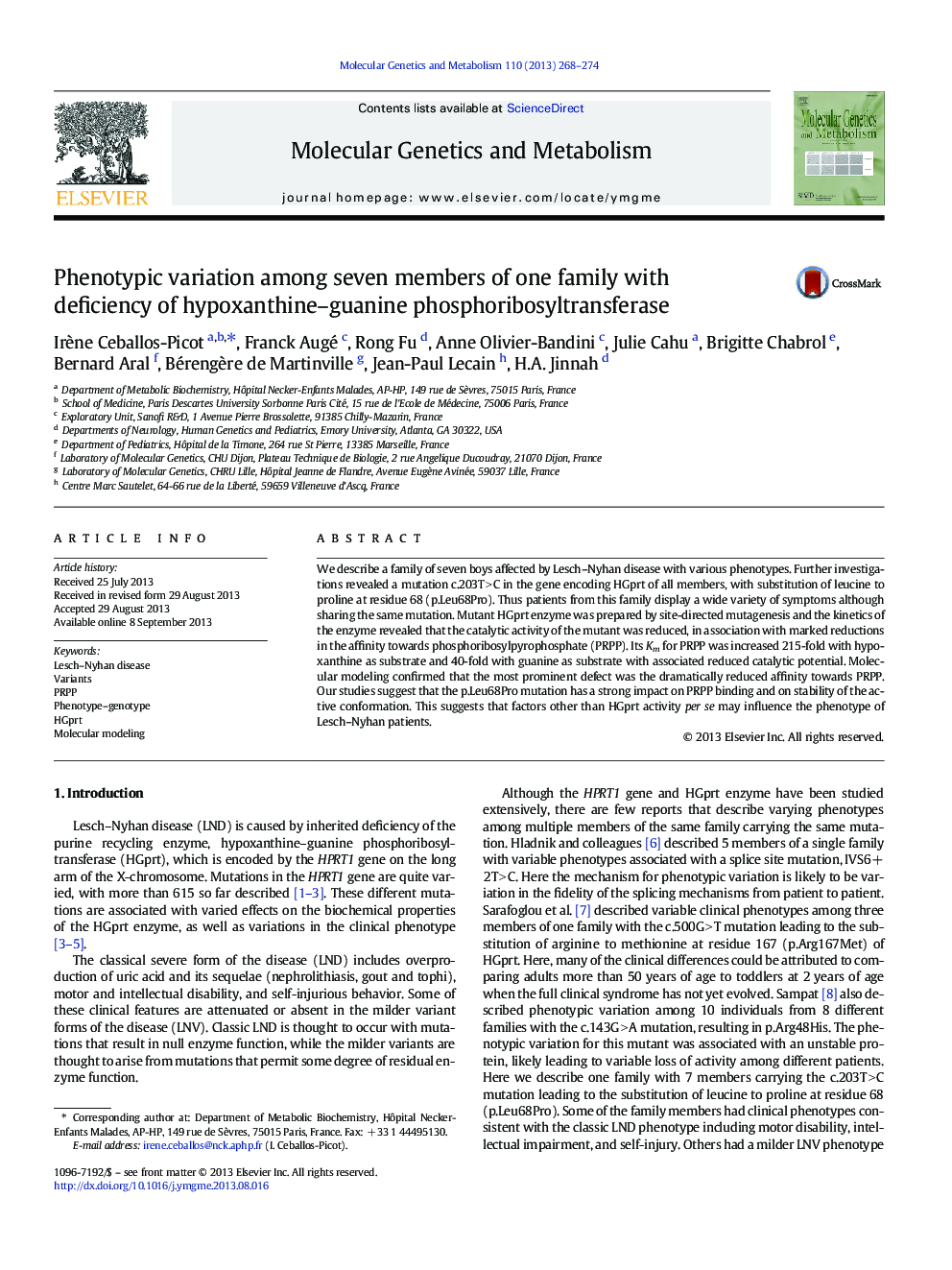| Article ID | Journal | Published Year | Pages | File Type |
|---|---|---|---|---|
| 10833192 | Molecular Genetics and Metabolism | 2013 | 7 Pages |
Abstract
We describe a family of seven boys affected by Lesch-Nyhan disease with various phenotypes. Further investigations revealed a mutation c.203TÂ >Â C in the gene encoding HGprt of all members, with substitution of leucine to proline at residue 68 (p.Leu68Pro). Thus patients from this family display a wide variety of symptoms although sharing the same mutation. Mutant HGprt enzyme was prepared by site-directed mutagenesis and the kinetics of the enzyme revealed that the catalytic activity of the mutant was reduced, in association with marked reductions in the affinity towards phosphoribosylpyrophosphate (PRPP). Its Km for PRPP was increased 215-fold with hypoxanthine as substrate and 40-fold with guanine as substrate with associated reduced catalytic potential. Molecular modeling confirmed that the most prominent defect was the dramatically reduced affinity towards PRPP. Our studies suggest that the p.Leu68Pro mutation has a strong impact on PRPP binding and on stability of the active conformation. This suggests that factors other than HGprt activity per se may influence the phenotype of Lesch-Nyhan patients.
Related Topics
Life Sciences
Biochemistry, Genetics and Molecular Biology
Biochemistry
Authors
Irène Ceballos-Picot, Franck Augé, Rong Fu, Anne Olivier-Bandini, Julie Cahu, Brigitte Chabrol, Bernard Aral, Bérengère de Martinville, Jean-Paul Lecain, H.A. Jinnah,
